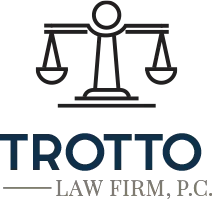A divorce is a complicated and sometimes frustrating process, particularly when separating spouses choose not to cooperate with one another on the path to settlement. From spousal maintenance to property division, every aspect of a shared life together must now be divided in two. Rooted in stereotypes, there may be many assumptions about what a wife is entitled to versus a husband, as most still assume that the husband is the primary provider. However, divorce law is nondiscriminatory and, therefore, entitles both spouses to an equitable division, regardless of gender.
Understanding the dynamics of New York divorce law can help you fight for what you are entitled to in your divorce.
Divorce Entitlements
In any divorce, there are several settlement issues that must be reached. These include, but are not limited to:
- Property and asset division
- Spousal maintenance
- Child custody
- Child support
These are often complicated matters to settle because each spouse may:
- Feel like they have contributed differently to the acquisition of property
- Have a significant difference in income
- Feel that the other spouse is unfit to care for any children
These and multiple other reasons make divorce settlements difficult for many couples.
Equitable Distribution
New York is an equitable distribution state as opposed to a community property state. In community property states, the divorce settlement seeks to divide marital property in a 50/50 split. However, in an equitable distribution state, the divorce settlement seeks to provide each spouse with an equitable settlement that takes into account several different aspects of the marriage. In equitable distribution decisions, the court will consider the following:
- The length of the marriage
- The income and any property owned by each spouse
- Any contributions to the marriage that are considered non-financial
- The age, health, and ability to earn for both spouses
- Any wishes that each spouse may have in regard to certain assets
- The spending habits and treatment of assets by both spouses prior to the divorce
A good example of how equitable distribution is considered is in terms of income. For example, assume that one spouse works full-time while the other spouse cares for the home and children. The spouse who works may feel like they are entitled to more because they contributed a greater financial amount to the marriage. However, in an equitable state, the law will consider the contribution of the nonworking spouse as a part of the ability of the financially earning spouse to do so. If the stay-at-home spouse did not do so, the other spouse may not have had the ability to earn the income that they did. Therefore, each spouse is considered to have contributed to the income.
In the same example, the spouse who may care for the children may assume that they will gain full custody of the children since they have been the primary caretaker. However, both parents have the right to equitable custody and child support awards.
These types of considerations are important because income is often at the center of many divorce cases.
Specifics of Divorce
Other areas of a couple’s divorce that must be considered include:
- The marital home. Considerations of how the marital home is divided include many of the reasons above. Because this is one of the larger decisions that must be made, the spouse who is awarded the home may give up certain other assets to reach an equitable settlement.
- Healthcare and insurance coverage. In some divorces, the benefits provided by employers can become part of the settlement. In cases where spousal maintenance is awarded, these aspects may be a part of that settlement.
- Degrees and professional certifications. The earning capacity of each spouse is taken into consideration for spousal maintenance. This includes any contributions or sacrifices one spouse made to the other so they could increase their earning capacity.
Because there are so many aspects of a divorce, understanding what you may be entitled to should be done with the help of a family law attorney.
FAQs
How Many Years Do You Have to Be Married to Get Alimony in New York?
The ability to receive spousal maintenance in a New York divorce is not set by a standard timeline. There are several considerations that are taken into account when determining if spousal maintenance is provided. This includes:
- The length of the marriage
- The earning capacity of both spouses
- The equitable contribution to the marriage
- Supporting benefits
How Are Assets Split in a Divorce in New York?
The division of assets follows the laws of equitable distribution. Under this type of settlement, spouses are not entitled to a 50/50 division but an equitable division. In a 50/50 division, both spouses would receive the same amount of assets. In an equitable distribution, factors such as the length of marriage and income are taken into account to determine what is equitable for both spouses.
Is New York a 50/50 Divorce State?
New York is not a 50/50 divorce state. New York is considered an equitable distribution state in which both spouses are entitled to an equitable divorce settlement rather than an equal divorce settlement. For many spouses, this can be frustrating because of what each spouse feels that they are entitled to. However, the law states that equity is the fairest division.
Who Qualifies for Alimony in New York?
Alimony, often referred to as spousal maintenance, is a part of a divorce settlement that both spouses are entitled to, regardless of income. While many assume that spousal maintenance is awarded when one spouse makes more money than the other, there are other considerations taken into account, such as:
- The length of the marriage
- The earning capacity of both spouses
- Any benefits provided from one spouse to the other
New York Divorce Attorney
New York divorces can be complicated, regardless of the gender of each spouse involved. The divorce laws in New York may leave you with more questions than answers. No matter what stage of the divorce process you are in, contact Trotto Law Firm, P.C., and get the help you deserve today so that you can receive the equitable settlement you are entitled to.






